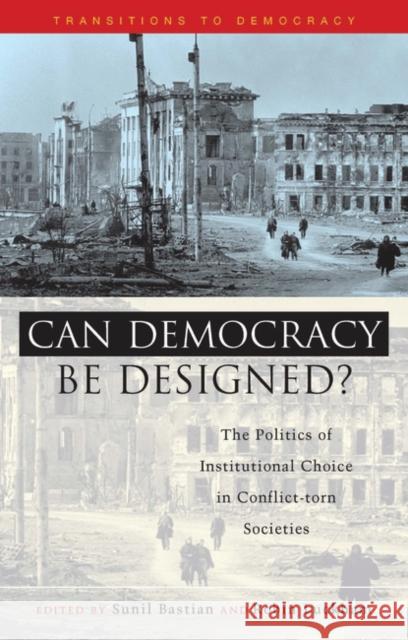Can Democracy Be Designed?: The Politics of Institutional Choice in Conflict-Torn Societies » książka
Can Democracy Be Designed?: The Politics of Institutional Choice in Conflict-Torn Societies
ISBN-13: 9781842771518 / Angielski / Miękka / 2003 / 352 str.
Can Democracy Be Designed?: The Politics of Institutional Choice in Conflict-Torn Societies
ISBN-13: 9781842771518 / Angielski / Miękka / 2003 / 352 str.
(netto: 146,35 VAT: 5%)
Najniższa cena z 30 dni: 148,68
ok. 30 dni roboczych
Bez gwarancji dostawy przed świętami
Darmowa dostawa!
Constitution-making for democracy has always been a highly political and contested process. It has never been more ambitious, or more difficult, than today as politicians and experts attempt to build democratic institutions that will foster peace and stability in countries torn by violent conflict. The extended investigation out of which this book has grown has ranged across three continents. It has examined such apparently intractable cases as Bosnia-Herzegovina, Sri Lanka and Fiji, as well as apparent 'success stories' like South Africa, Ghana and Uganda.
Three groups of questions are explored:
* How and by whom were democratic institutions (re)designed?
* How have they functioned in practice: what has been the relationship between democratic institutions and democratic politics?
* How have they measured up to the pressures placed on them by ongoing violence, poverty, globalization and democratization itself?
The authors, while regarding democracy as a general entitlement, refuse to subscribe to a triumphalist view which sees it as a universal panacea. Instead they seek to understand how democratic institutions actually facilitate (or sometimes fail to facilitate) improved governance and the management of conflict in a variety of national settings.
This thoughtful and empirical set of explorations is highly relevant to other societies wrestling with similar problems of institutional design in situations of democratic transition and/or deep-seated social conflict.











